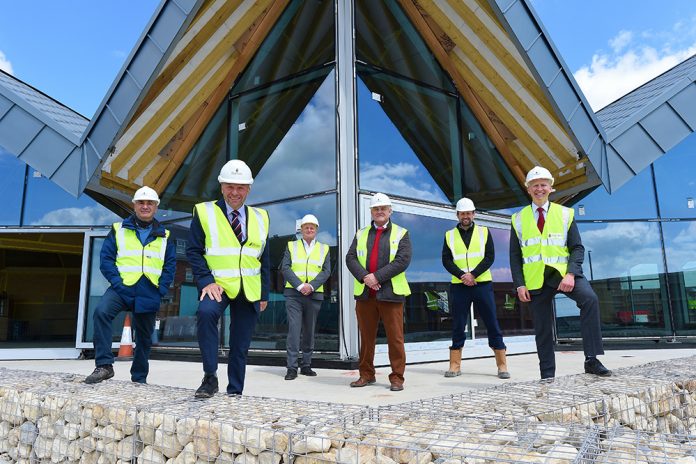The British arable sector offers many solutions to the climate challenge, but it needs the right policy environment if it is to fulfil its potential when it comes to preventing and managing the impacts of climate change, says the NFU.
Speaking at the Cereals event in Lincoln on June 30, NFU President Minette Batters discussed the important role growers have to play in tackling climate change, the opportunities climate mitigation can offer arable businesses and the challenges that will have to be overcome in order to maximise them.
Mrs Batters said: “The crops grown in the UK form the very basis of our diets, producing the raw ingredients for the nation’s pantry staples, but their significance does not end there. I truly believe that British farming businesses can be global leaders in climate-resilient food production and the arable sector is at the core of this.
“As we look down the road to net zero, growers have a rare ability to fuel the bioeconomy and have a positive impact on decarbonisation within both farming and other sectors. Our arable farmers are also uniquely placed to capture carbon through soil management, such as through green cover crops or reduced tillage systems, and it’s so important that government schemes such as the Sustainable Farming Incentive (SFI) properly incentivise, support and reward this type of work.
“It’s really exciting that we will start to see E10 at petrol stations in a few months’ time and there will be further opportunities for farmers to direct more land and by-products into biomass production, renewable energy and carbon capture. It’s important that the contribution farmers can make toward the UK’s national net zero target by avoiding fossil fuel emissions and driving crucial greenhouse gas removal is recognised and encouraged in the government’s upcoming biomass strategy.
“But while our national and industry net zero ambitions will provide a variety of economic opportunities for growers, we can’t underestimate the challenges that will come with it.
“One challenge we face is around building climate resilience, both on a national scale and on an individual farm business basis to give our businesses the best chance of surviving and thriving in the future.
“But perhaps the biggest challenge of all will be how we actually value carbon and the services farming as an industry can provide. This is a hugely complex area and one which needs global collaboration and uptake, which is why our trade policy must also align itself to our net zero ambitions, otherwise we risk undermining the good work here and exporting our carbon footprint abroad.”





